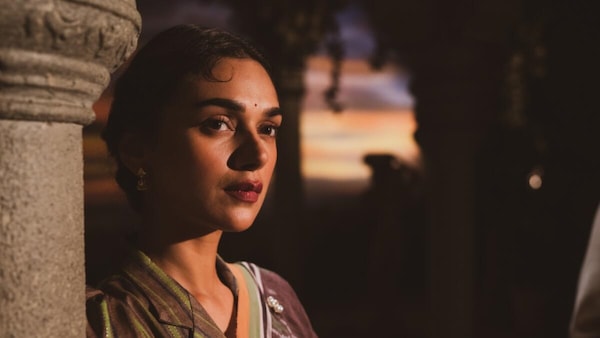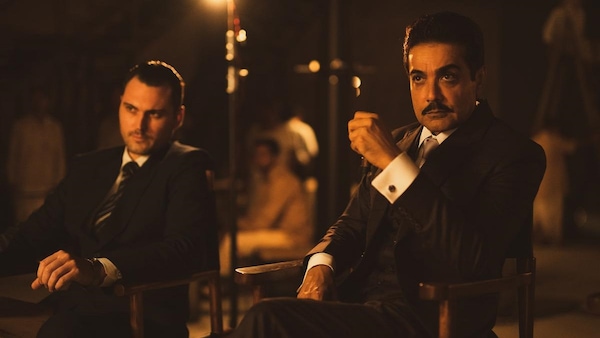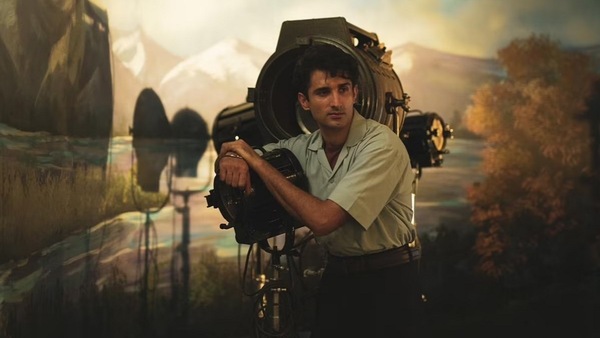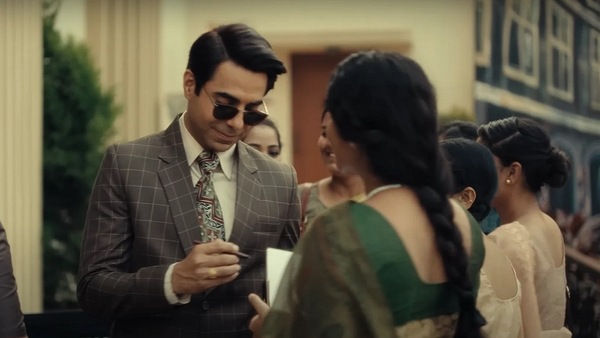Jubilee: A Hyper-Stylised Origin Story For Independent India Via Showbiz
This is #CriticalMargin, where Ishita Sengupta gets contemplative over new Hindi films and shows. Today: Vikramaditya Motwane's Jubilee.

Jubilee. Amazon Prime Video
Last Updated: 12.12 PM, Apr 08, 2023
BACK IN 2022, Vikramaditya Motwane had taken to Instagram to share a snippet of his family history. The filmmaker revealed that shortly after 1947, his family had produced a film called Andolan. It centered on India’s freedom struggle and did not fare well, terminating any similar endeavours by Motwane Limited. He further acknowledged that the film was his grandfather’s passion project and that many attributed Andolan’s failure to its reiteration of the freedom movement in 1951, a time too close to when it really happened. With his latest work, marking Motwane’s return to longform storytelling after five years, the Sacred Games director pays his own homage to this era. Except, this time, he shifts the vantage point. The result is a stunning visual and sonic achievement imbued with vacuous interiority.
Jubilee is a hyper stylised origin story of an Independent India and its aftermath, articulated through the seedy bylanes of showbiz. It is a clever decision since Hindi films have been a telling metric and reservoir of the country’s political chaos. Spanning across six years, from 1947-1953, the show encapsulates a specific temporal history of nation building when it intersected with the rise of Hindi cinema’s first superstar.

The sprawling epic, written by Atul Sabharwal and created by Motwane and Soumik Sen, is centered on a studio owner and his quest for finding a new face for his film. The time is July 1947 and the man is Srikant Roy (Prosenjit Chatterjee), the egotistical co-owner of Roy Talkies. His wife and actress Sumitra Kumari (Aditi Rao Hydari) enjoys equal partnership in the business. In a tryst of fate, she falls in love with Jamshed Khan (Nandish Singh Sandhu), the man Srikant had chosen for his new film. When we see them for the first time, they are covertly meeting in Lucknow and later, making plans to elope to Karachi. Jamshed has been offered a role in a play there and the actor contemplates choosing theater over films, a decision equally informed with the fact that joining the latter mandated a Muslim to hide their identity and adopt a Hindu one. Things don’t fall into place. Jamshed reaches neither Bombay nor Karachi; his absence opens up the place for Srikant’s trusted aide Binod Das (Aparshakti Khurana) to become the coveted superstar — Madan Kumar.
Granted, Motwane's work is a fictional outing but the embellishments are so light that it is easy to locate its authentic counterparts. The narrative kernel here is based on the transgressive affair that transpired between yesteryear superstar Devika Rani and Najam-Ul-Hasan. At that time she was still wedded to Himanshu Rai, the co-founder of Bombay Talkies. Her relationship with Hasan not just ended the actor’s association with the studio but birthed the rise of a superstar who worked as a lab assistant in Bombay Talkies: Ashok Kumar.

Having said that, Jubilee never becomes an iteration of gossip nor does it restrict itself to this story alone. At most, it's a tease. As the series unravels, more and more characters come to the fore. There is Jay Khanna (Sidhant Gupta), a driven Punjabi boy who is rendered a refugee in the city; there is Shamsher Singh Walia (Ram Kapoor), a financier resistant to big gambles. Tying them together is Niloufer Qureshi (Wamiqa Gabbi), a courtesan who harbours aspirations of becoming an actress. All their lives collide in one city.
At its best, Jubilee evolves into a fascinating totem of time. The details are all there. The partition, the refugee camps, the banning of Hindi songs on radio by the Indian government (which happened in 1952). The intervention of Russia and America to use Hindi films as propagandist tools. The reliance of Urdu in Hindi dialogues and songs, the role the Sindhi community played in creating a culture of movie going, the references to filmmaker K Asif who at that time was making his magnum opus Mughal-E-Azam (the film took 16 years to be made and released in 1960). The show even alludes to the way playback singing came to the country. With a clear-eyed purpose, Motwane uses Hindi films as the vehicle to reflect the inflections of change in technology and more crucially, in a country whose secular core remained steadfast despite communal riots.

His intent is ably complemented by Alokananda Dasgupta, who furnishes the background score. In several instances, her evocative score singlehandedly elevates a scene. Even Pratik Shah presents a distinct portrait of Bombay of that time, using shadows and colours to draw out the hidden dubiety in characters. There is a particularly striking moment in the first episode when two characters, both hiding something from the other, sit in a car with their faces half-wrapped in darkness.
But somehow Jubilee gets too caught up with the gorgeous sets and compelling research, the immaculate framing and the music. Somehow, the show refuses to be anything more than a compelling documentation of the time. The plot does not unfold as much as it scatters. The problem is not that there are too many characters but that Motwane ties them together through abject contrivances. Revealing anything specific might count for a spoiler but several times I paused to check if I had missed out an entire episode.

I understand the prospect of presenting a succinct time frame is accompanied by certain omissions but at no point is what we see on screen captivating enough to make us overlook the gaps. Post-episode five, the narrative feels increasingly manufactured. A character gets beaten up by others and in the next scene we see him with a friend in her car. How did he get through to her at night when we know he is broke? How was having a phone number enough to make a call in the early 1950s? A woman is shown to be a mistress of a certain rich man but an episode later, everyone behaves like it never happened. A subplot of guilt runs through the entire show but rears its head only when thematically convenient. Many moments, designed with the intention of narrative foreboding, yield comically nothing. More importantly, consider this: a single character ties everyone else in the show. But even when it becomes public information, there is hardly a tremor.

It doesn’t end here of course. Most character arcs fall prey to this decorative writing. Chatterjee essays the role of Srikant Roy with ease but the depiction is beset with jaded familiarity. Even Sumitra Kumari is reduced to a prototype, landing no further from the roles Hydari has done in the past even though it seems different on paper. I understand it mustn't have been easy for a woman to navigate a world dominated by men but Jubilee withholds the struggle (even verve) and offers only her futile effort as a testimony to her tribulations. But the one that really troubles me is the characterisation of Binod Das. Khurana essays this in exactly two notes which flits between being wily before others and subservient before Srikant Roy. The sole shining spark here is Sidhant Gupta who has a charming presence and brings a lightness of touch to Jay Mehta. You know who his character is modelled on, but the legacy never hangs heavy on his portrayal.
There is no less irony in the fact that Motwane has made this show, precisely because half a decade back he was one of the first filmmakers in India who crafted a roadmap of negotiating with the streaming style. Cut to 2023, Jubilee not just feels like a lesser work but comes across as an outing that at the most fundamental level fails to mine the potential of the medium it is in. The series ends up as such a joyless affair that it bears no vividity of art, remaining instead as a stunning artifact.
